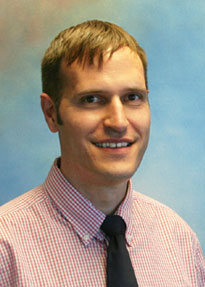Behavior Change
Research overview
If you’re like most people, your health depends more on what you do every day than on what your health care provider can do for you. Nonetheless, making healthy lifestyle choices can be difficult, especially when it means changing your daily routine and then maintaining these changes over time. That’s why scientists with Kaiser Permanente Washington Health Research Institute (KPWHRI) are working to make the right choices the easy and sustainable ones.
Research suggests that approximately one-third of all deaths in the Unites States are related to 4 behavioral risk factors: physical inactivity, poor nutrition, tobacco use, and excessive alcohol use. But other behaviors are also critical to health and well-being, such as not misusing prescription opioids or marijuana, getting routine cancer screenings, and following your providers’ medical advice.
Historically, KPWHRI's research has tested different forms of behavioral counseling or novel ways to deliver this counseling. Increasingly, we are now testing digital therapeutic interventions delivered via smartphone app or text — for example, to help people set and achieve their health goals. People like the convenience of digital interventions, but it remains to be seen how effective they are and for whom they work best. Our research is helping to answer these important questions.
KPWHRI’s behavioral medicine research includes:
- Reducing unhealthy use or abuse of substances such as tobacco, alcohol, cannabis, and opioids
- Promoting physical activity, healthy eating, and weight loss
- Improving oral health care
- Increasing treatment adherence and routine cancer screening
- Improving chronic pain management
- Creating personalized, convenient, effective behavioral interventions that can be delivered using various digital technologies
Recent Publications on Behavior Change
Curry SJ. Cognitive factors and relapse following smoking cessation. Health Psychol. 1986;5(suppl):92-4. PubMed
Curry S, Marlatt GA. Building self-confidence, self-efficacy and self-control. In: M. Cox (Ed). Treatment and Prevention of Alcohol Problems: A Resource Manual, Florida: Academic Press, 1986. PubMed
Bledsoe T. No smoking at Group Health Cooperative of Puget Sound. N Engl J Med. 1985;313(14):894. PubMed
Roffman R, Goldstein S. Relapse prevention in chronic marijuana smokers. In: A. Carmi and S. Schneider (Eds). Drugs and Alcohol, NY: Springer-Verlag, 1985. PubMed
Curry SJ. Review of "Essentials of Chemical Dependency Counseling" Bulletin of the Society of Psychologists in Addictive Behaviors. 1985, 4(3), 175-177. PubMed
Researchers in Behavior Change
 Katharine A. Bradley, MD, MPHSenior Investigator |
 Paula Lozano, MD, MPHSenior Investigator; Director, ACT Center |
 Dori E. Rosenberg, PhD, MPHSenior Investigator |
 James D. Ralston, MD, MPHSenior Investigator |
 Ben Balderson, PhDSenior Collaborative Scientist |
 Gwen Lapham, PhD, MPH, MSWAssistant Investigator |
 Melissa L. Anderson, MSPrincipal Collaborative Biostatistician |
 Paula R. Blasi, MPHSenior Collaborative Scientist |
 Joseph E. Glass, PhD, MSWSenior Investigator |
 Beverly B. Green, MD, MPHSenior Investigator |
 Julie E. Richards, PhD, MPHAssociate Investigator |
 Leah K. Hamilton, PhDSenior Collaborative Scientist |
 Chloe Krakauer, PhDCollaborative Biostatistician |
 Mikael Anne Greenwood-Hickman, MPHSenior Collaborative Scientist |
 Pamela A. Shaw, PhD, MSSenior Biostatistics Investigator |
 Kelsey Stefanik-Guizlo, MPHCollaborative Scientist |
Affiliate researchers
Sheryl L. Catz, PhD
Professor, Health Care Innovation and Technology, Betty Irene Moore School of Nursing
University of California–Davis
Sue McCurry, PhD
University of Washington (UW) Department of Psychosocial and Community Health
Emily Williams, PhD, MPH
UW Department of Health Services; VA Health Services Research & Development Center of Excellence














